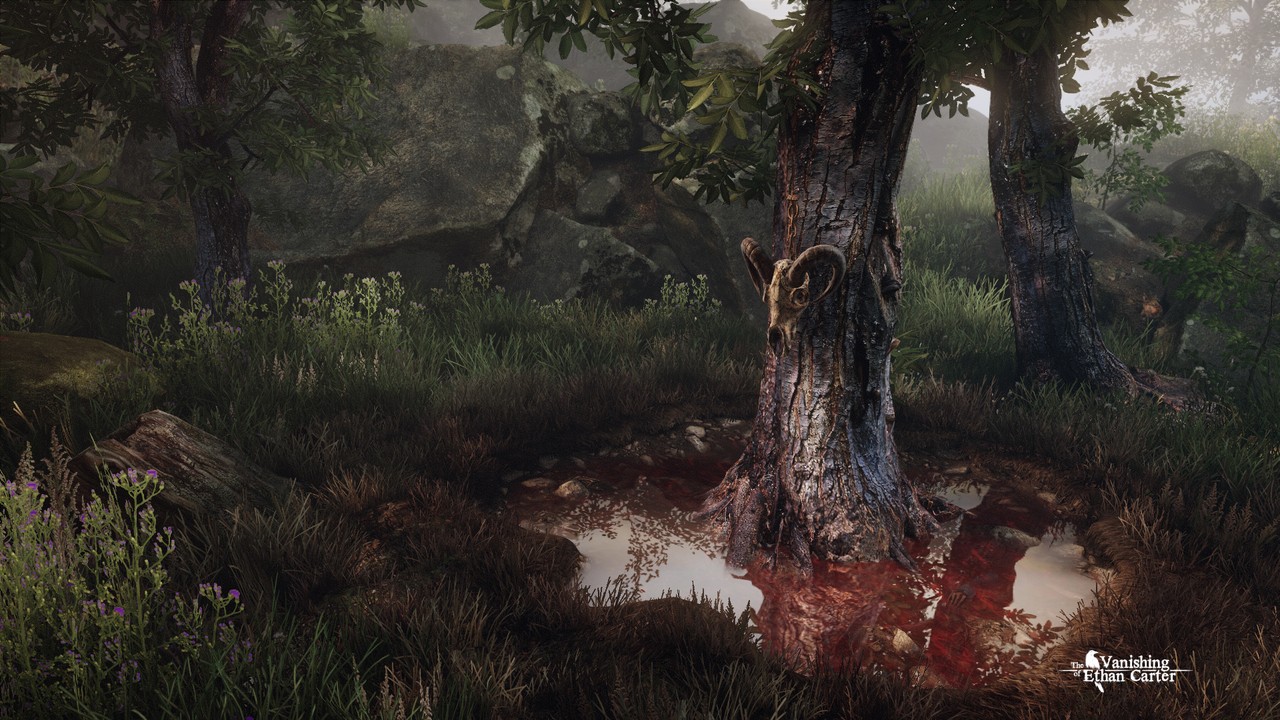
These writings offer a lot to the story, but only if the players can put them together and see how they fit with one another–“Was this letter written by the same guy that newspaper clipping was talking about earlier?” Making that type of connection is quite rewarding and makes the story an even deeper one. For example, there are various newspaper clippings and letters written by Ethan and his family that you find throughout the game, mostly after you finish piecing a puzzle together. In fact, it does it better than almost any story-driven game I’ve ever played. Letting the players figure out the details of the story themselves and then letting their imaginations run with all the different theories is what The Vanishing of Ethan Carter does best. At its core, the game seems to be a love letter from the writer to the reader about the power of storytelling. If you paid attention to only those narrations, you would still have a mild grasp of what is going on by the end of the game, though it would be a vague understanding. There are also occasional voice-over narrations that ensure you aren’t completely lost, in case you haven’t pieced anything together yourself yet. Like other games such as Amnesia: The Dark Descent, you piece the story together through different memories. (I won’t give away the mechanic because to some players, figuring it out is a part of the game.) Apart from that minor bump in the road, the way The Astronauts left the story for you to find instead of just telling it to you made the story more interesting. After looking up that mechanic online, it was smooth sailing from beginning to end. You are never really told or shown how it works, which caused me to get almost immediately stuck on the first puzzle. There are little gameplay mechanics in The Vanishing of Ethan Carter, but there is one in particular that is important to solving all the puzzles of the game. Your progression through the game offers small bits and pieces of the story and of what happened to Ethan and his family, and it is a very rewarding and fulfilling experience.īefore the game even begins, it tells you that it “is a narrative experience and does not hold your hand.” This fact holds true throughout the game, and, although I loved that approach, it causes a fair amount of confusion in the very beginning. As soon as you step into Ethan’s world, Red Creek Valley, you can immediately sense something is completely off in this picturesque, northern woods landscape. After his letters become strange and less frequent, you decide it would be a good idea to check up on the kid.


You play as Paul Prospero, a famous private detective who receives a large amount of fan mail from a young boy named Ethan Carter. Although there are a few minor hiccups along the way, The Vanishing of Ethan Carter delivers one of the best narrative experiences of 2014. With a unique take on a classic fictional trope, this game keeps you completely focused and absorbed for its two- to three-hour length. The Vanishing of Ethan Carter, developed by an indie studio called The Astronauts, is a story-driven game that involves puzzles, mysteries, twists and an overall sense of dread and adventure with a focus on tone and exploration.


 0 kommentar(er)
0 kommentar(er)
